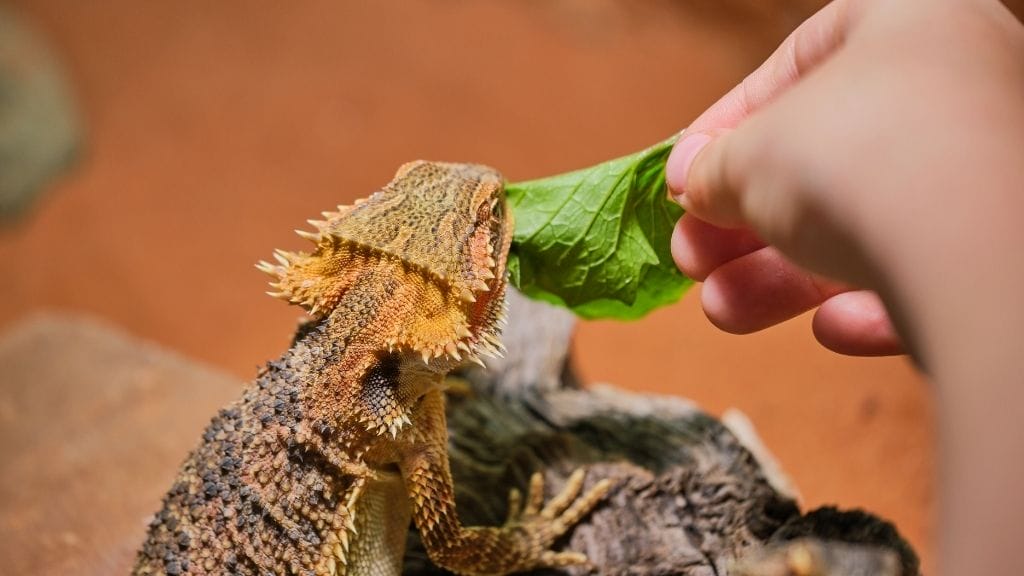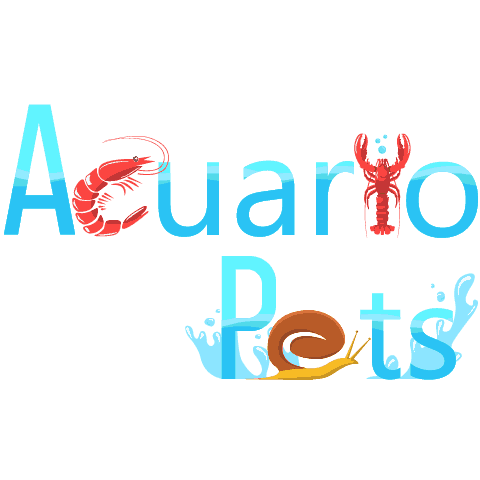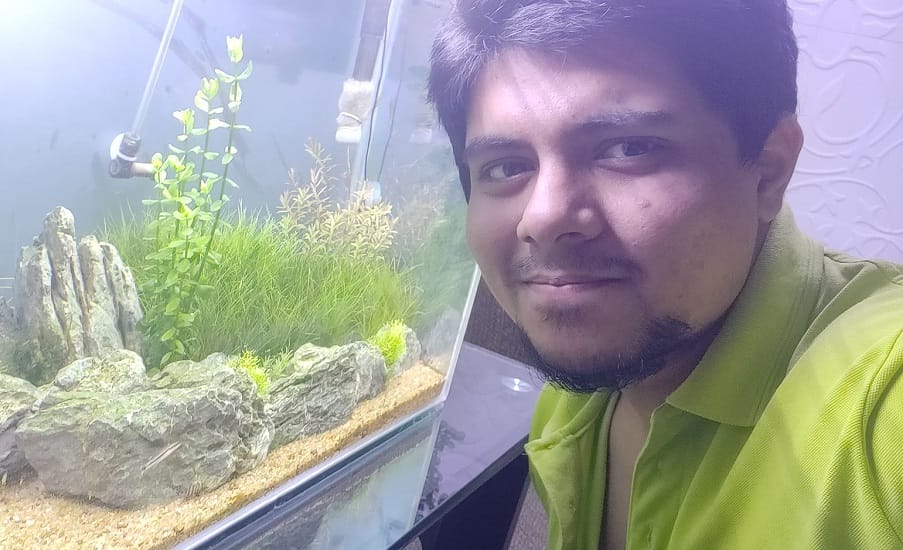This post was created with help from AI tools and carefully reviewed by a human (Muntaseer Rahman) . For more on how we use AI on this site, check out our Editorial Policy.
Check Out These FREE Tools We Made JUST For You!
Why Your Bearded Dragon Isn’t Eating (And What You Can Do About It)

You’re standing there with a cricket dangling from your tweezers, looking at your bearded dragon like a disappointed parent watching their kid refuse vegetables at dinner.
Except this time, your kid is refusing everything. The roaches? Nope. The greens? Not happening. That fancy fruit you bought? Forget about it.
Welcome to the world of bearded dragon hunger strikes, where your scaly friend has decided that food is suddenly optional and you’re left wondering if you’ve somehow failed Reptile Parenting 101.
Don’t Panic (Seriously, Take a Breath)
First things first: your beardie probably isn’t dying.
I know that’s not super comforting when you’ve spent the last three days watching them ignore perfectly good crickets, but here’s the thing. Bearded dragons naturally go through periods where their appetite decreases, and this is a common concern among reptile owners. Sometimes they’re just being dramatic lizards.
That said, there are legit reasons why your dragon might be on a food strike. Let’s figure out which one applies to your situation.
The “I’m Just Getting Used to Things” Phase
New Home Jitters
Did you just bring your beardie home?
Like all animals, bearded dragons love routine and prefer familiar surroundings, so they may lose their appetite for a little while in a new environment. Think of it like when you move to a new city and suddenly forget how to function for the first week.
What to do: Be patient. Keep offering food daily. Give them time to realize their new palace is actually pretty sweet.
Environmental Changes
Here’s the thing about beardies: they’re creatures of habit who hate surprises.
Sometimes all it takes is a change like a new pet or baby in the household, construction in the area, or even a new tank decoration to throw them off their feed for a bit. Your dragon might be staging a protest over that new hide you thought was adorable.


Your Beardie Has More to Say…
This article tells you WHAT to do, but do you know WHY your dragon needs it? Or what they’re thinking when you do it wrong?
Read the full rant (all 20 chapters of it) in: “What Your Bearded Dragon Wishes You Knew”
*Told by a very frustrated beardie who’s had ENOUGH of watching you guess.*
Temperature: The Most Common Culprit
Let me tell you a story. My friend once couldn’t figure out why her beardie stopped eating for weeks. Turns out? Her basking lamp had been slowly dying, and the tank was basically a lukewarm lizard hotel.
They’re Too Cold
Being ectothermic (cold-blooded), bearded dragons cannot control their internal body temperature and rely on external heat sources to do this. If your bearded dragon’s tank temperature is consistently too low, they will be unable to properly digest their food, and in turn, will lose their appetite.
The magic numbers:
- Basking spot: 95-110°F during the day
- Cool side: 80°F during the day
- Nighttime: 65-75°F
Anything outside this range? Your dragon’s basically sitting there thinking “I can’t digest this anyway, so why bother eating?”
Insufficient UVB Lighting
Without a high-quality UVB light with the percentage tailored to the distance between the light and the highest basking spot, a bearded dragon will begin to suffer from metabolic bone disease, due to a lack of Vitamin D3 in its system.
Pro tip: Replace your UVB bulb every 6 months even if it still looks fine. These things lose their effectiveness before they burn out completely.
Natural Life Events (AKA “This Is Normal, Relax”)
Shedding
Picture this: you’re walking around in a full-body wool suit that’s slowly peeling off. Would you want to eat a three-course meal? Probably not.
Many reptiles lose their appetite during the shedding process, and bearded dragons are no exception. This is completely normal and usually only lasts a few days.
Signs your dragon is shedding:
- Dull, grayish skin
- Paper-like skin that flakes off in sections
- Extra grumpy attitude
- Generally looking like they’re falling apart (they’re not, I promise)
Brumation: The Dragon Winter Nap
Brumation is a period of dormancy that bearded dragons go through during the winter, where they enter deep sleep, their metabolism slows to allow them to reduce their food intake and remain sheltered during the cold months.
It’s basically hibernation for reptiles, except your dragon might wake up occasionally to stare at you judgmentally before going back to sleep.
Knowing the signs of brumation including lethargy, eating less, hiding or sleeping more, can help you provide the care your pet needs during this time.
Here’s the weird part: some reptiles enter dormancy when winter arrives in their native habitats, even if it happens to be summertime in their present home. Your dragon’s internal clock might be set to Australia even though they’ve never been there.
What to do: If you suspect brumation, get a vet checkup first to rule out illness. Then let them sleep. Keep them hydrated. Don’t force-feed them. They’ll wake up when they’re ready.
Growing Pains
Juvenile beardies are basically tiny eating machines until suddenly they’re not.
Just like some kids, a growth spurt can make some beardies feel under the weather. Give it a few days, and they’ll probably go back to demolishing everything in sight.
Age-Related Changes
As bearded dragons get older, their metabolism naturally slows down, and they require smaller but more frequent meals. After 10 months of age, many bearded dragons convert from eating a meal every day to eating every 48-72 hours.
So if your adult dragon isn’t eating daily anymore? That’s actually normal.
Stress: The Silent Appetite Killer
Tank Stress
Stress caused by an inappropriate tank environment can cause loss of appetite, including poor hygiene, temperatures that are too hot or cold, a tank that is too small, or the absence of a place to hide.
A too-small enclosure, or one that is too cluttered, is sometimes the cause of a bearded dragon not eating. Your dragon needs space to roam and places to hide when they want privacy.
The Cohabitation Disaster
I’m going to say this loud for the people in the back: DO NOT HOUSE BEARDED DRAGONS TOGETHER.
Bearded dragons are naturally territorial, and the less dominant dragon will eventually starve to death. They’re solitary in the wild and don’t feel lonely without lizard friends.
If you have two beardies and one isn’t eating? Get another tank yesterday.
External Stress
Things going on outside of the tank can cause stress: loud noises and too much cuddle time or at the other end of the spectrum, boredom and under-stimulation.
Also, this is fascinating: while your lizard is getting used to you, even the action of your hand coming from above to place food in its tank can be seen as a threat from a predator, making your bearded dragon less likely to eat. Because to a lizard, things that come from above usually want to eat them.
Diet and Pickiness
Juvenile Food Strikes
If you have a juvenile dragon who is refusing their greens but still eating insects, this is probably normal, as the best thing to do is to be patient and keep offering greens as well as insects.
Baby beardies are basically carnivores who need to learn that salad exists. For a hatchling or juvenile dragon, the insect part of their diet should be more prominent, with daily insect feeding.
As they grow, the ratio shifts. The plant part should make up around 75% of an adult bearded dragon’s diet and consists of leafy greens, vegetables and occasional fruits, while the animal part should make up the remaining 25%.
They’re Just Picky
Bearded dragons have taste preferences just like we do. Maybe your dragon hates collard greens but loves mustard greens. Maybe they’ll only eat crickets on Tuesdays. They’re weird little creatures.
Try offering variety: turnip greens, kale, bell peppers, Dubia roaches, crickets, locusts. See what sticks.
Poor Nutrition
Whether it’s a vitamin deficiency or poor diet, a dragon can lose their appetite if they are not feeling well, and oftentimes lethargy and appetite loss go hand in hand.
Make sure you’re dusting food with calcium powder to prevent metabolic bone disease. This isn’t optional. It’s like asking if your car needs oil.
The Scary Stuff: Health Issues
Okay, now we’re getting into territory where you need to pay attention.
Impaction: The Emergency
Gut impaction is when undigested or indigestible matter gets stuck in the bearded dragon’s digestive tract and is unable to pass through while blocking anything else from passing through.
How it happens:
- Accidentally ingesting an inedible substance or item, such as a piece of a low-quality plastic plant or a large piece of loose substrate (such as pebbles or walnut shells)
- Eating food items that are too large to properly move through their digestive tract
- Being fed a food item difficult to digest without proper temperatures for digestion
Warning signs:
- No poop for more than 3 weeks
- Lethargy
- Dragging or paralyzed back legs (this is an EMERGENCY)
- Difficulty moving
- Swollen belly
Bearded dragon spines have no discs, leaving vertebrae vulnerable to pressure, so if the mass pushes into the spine, it can cause partial paralysis in the hind legs.
What to do for mild impaction:
You can loosen a mild impaction by massaging your dragon’s belly and soaking him or her in lukewarm water for 30 minutes every day until they pass stool. If this doesn’t work after a week, call a reptile vet immediately.
What NOT to do:
- Don’t place your dragon on their back as this can further damage the spinal cord and cause difficulty breathing
- Don’t try to use prune juice or laxatives without vet guidance
Some people have success with high-fiber fruits like watermelon to help with mild constipation. But seriously, if you see paralysis or your dragon can’t move properly, skip the home remedies and go straight to the vet.
Parasites
Feeder insects can carry parasites like pinworms or coccidia that can make your beardie sick, and less inclined to eat their favorite foods.
Other signs include lethargy and diarrhea. You need a fecal exam from a reptile vet to diagnose this.
Other Illnesses
Illnesses that cause appetite loss include metabolic bone disease, respiratory infections, mouth rot, and internal parasites.
Red flag symptoms that mean “GO TO VET NOW”:
- Vomiting
- Bulging eyes
- Difficulty breathing
- Prolonged diarrhea
- Crooked limbs
- Lumps on the body
- Weight loss despite eating
- Can’t move properly
Injuries
An injured bearded dragon is likely to stop eating, including small cuts from sharp edges, broken bones caused by a fall, or bites from their live food (particularly crickets).
Always check your dragon for injuries if they suddenly stop eating.
Solutions: Actually Fixing the Problem
Step 1: Check Your Setup
Grab your thermometer gun (you have one, right?) and check those temperatures. Replace any old UVB bulbs. Make sure the tank is clean and spacious enough.
Minimum tank sizes:
- Baby: 20 gallons (but they’ll outgrow it fast)
- Juvenile: 40 gallons
- Adult: 75-120 gallons
Step 2: Reduce Stress
Minimize handling if they’re new. Keep noise levels down. Remove any decorations they seem scared of. Give them time to adjust.
Step 3: Offer Variety
Try different foods. Some beardies go crazy for Dubia roaches. Others prefer crickets. Some will only eat greens if you top them with blueberries (yes, really).
Step 4: Warm Baths
Bearded dragons don’t like to drink much, so it is important to soak them three to four times per week in lukewarm water. This helps with hydration and can help with mild digestion issues.
Step 5: When to Call the Vet
If your bearded dragon goes without eating for more than two weeks or shows other signs of distress, it’s time to give your vet a call.
Don’t wait if you see:
- Paralysis or difficulty moving
- Extreme lethargy
- Vomiting
- Rapid weight loss
- Any signs of illness or injury
The Bottom Line
Your bearded dragon not eating is probably one of these things:
- They’re adjusting to something new
- The temperature is wrong
- They’re shedding or brumating
- They’re stressed
- They’re being picky
- Something is actually wrong
Most of the time? It’s numbers 1-5, and you can fix it yourself.
But if your gut is telling you something is seriously wrong, listen to it. Find a reptile vet who actually knows bearded dragons. Not all vets are equal when it comes to exotic pets.
And remember: appetite loss is extremely common among bearded dragons, and chances are, it’s nothing serious. Your dragon isn’t trying to stress you out on purpose.
They’re just a complicated little dinosaur who sometimes forgets that food is good.
About Author
Hello, I’m Muntaseer Rahman, the owner of AcuarioPets.com. I’m passionate about aquarium pets like shrimps, snails, crabs, and crayfish. I’ve created this website to share my expertise and help you provide better care for these amazing pets.
Disclaimer
This site is owned and operated by Muntaseer Rahman. AcuarioPets.com is a participant in the Amazon Services LLC Associates Program, an affiliate advertising program designed to provide a means for sites to earn advertising fees by advertising and linking to Amazon.com. This site also participates in other affiliate programs and is compensated for referring traffic and business to these companies.

